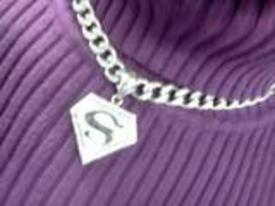The truth about protein and weight loss

Dark_Latin_Guy
Posts: 149 Member
Cutting through the hype to bring you the facts.
Every decade has its hot nutrient. The '80s had carbs, as we all jogged and marathoned our way to the pasta and potato bar. The '90s were the fat decade: There were good fats, bad fats -- even fake fats. Now the hot nutrient is protein, and the top-selling diet books can't get enough of it. There's the protein diet, the high-protein diet and the even-higher-protein diet. But how much protein do we really require? What foods contain it? Which protein is best? And does working out influence protein needs?
The more active you are, the more protein you need, explains Melinda Manore, Ph.D., chairwoman and professor of the department of nutrition and food management at Oregon State University. But with high-protein diets all the rage, some women are eating more than what even the most active females need. The Zone diet supplies almost double the amount of protein recommended by the American Dietetic Association (ADA), while the Dr. Atkins and Protein Power diets more than double it. (For details, see "3 Protein Diets at a Glance" on page 181. To calculate your own protein needs, see question 3, "How much protein do I really need to eat every day?" on page 178.)
Q: What is protein and is it crucial to make sure I get enough?
A: Protein comprises 20 building blocks called amino acids. Of those 20, the body makes 11 called nonessential amino acids. The other nine, called essential amino acids, must be supplied by food, or dietary protein, explains Julie Burns, M.S., R.D., owner of SportFuel Inc., a sports-nutrition company in Western Springs, III.
There are two kinds of dietary protein -- complete and incomplete, Burns says. Animal and soy proteins are called "complete" proteins because they contain all nine essential amino acids. Plant products, including vegetables, nuts and legumes, are called "incomplete" proteins because they lack one or more essential amino acids, she says.
Read More @ http://findarticles.com/p/articles/mi_m0846/is_2_22/ai_91233478/
Every decade has its hot nutrient. The '80s had carbs, as we all jogged and marathoned our way to the pasta and potato bar. The '90s were the fat decade: There were good fats, bad fats -- even fake fats. Now the hot nutrient is protein, and the top-selling diet books can't get enough of it. There's the protein diet, the high-protein diet and the even-higher-protein diet. But how much protein do we really require? What foods contain it? Which protein is best? And does working out influence protein needs?
The more active you are, the more protein you need, explains Melinda Manore, Ph.D., chairwoman and professor of the department of nutrition and food management at Oregon State University. But with high-protein diets all the rage, some women are eating more than what even the most active females need. The Zone diet supplies almost double the amount of protein recommended by the American Dietetic Association (ADA), while the Dr. Atkins and Protein Power diets more than double it. (For details, see "3 Protein Diets at a Glance" on page 181. To calculate your own protein needs, see question 3, "How much protein do I really need to eat every day?" on page 178.)
Q: What is protein and is it crucial to make sure I get enough?
A: Protein comprises 20 building blocks called amino acids. Of those 20, the body makes 11 called nonessential amino acids. The other nine, called essential amino acids, must be supplied by food, or dietary protein, explains Julie Burns, M.S., R.D., owner of SportFuel Inc., a sports-nutrition company in Western Springs, III.
There are two kinds of dietary protein -- complete and incomplete, Burns says. Animal and soy proteins are called "complete" proteins because they contain all nine essential amino acids. Plant products, including vegetables, nuts and legumes, are called "incomplete" proteins because they lack one or more essential amino acids, she says.
Read More @ http://findarticles.com/p/articles/mi_m0846/is_2_22/ai_91233478/
0
Replies
-
Great Information, you always keep us informed. After reading i need to kick my protein up a notch0
-
bump0
-
Bump0
-
Bump! Thanks
 0
0 -
Bump! Thanks!0
-
One thing not reported in this awesome post is an alternate way to get a complete protein is to mix beans / legumes and rice. What does bump mean?0
-
To bump a thread on an internet forum is to post a reply to it purely in order to raise the thread's profile. This will typically return it to the top of the list of active threads (Wikipidia)
Threads drop off the screen fairly rapidly on this site so to bump is a way of keeping the thread alive and in view.0 -
BUMP0
-
bump0
-
Wow! Checking out this article it says I should be eating over 170g of protein! How the heck am I gonna do that! Pleaseeee don't suggest beans! That's NOT gonna happen!!! Here chicky chicky!!!!0
-
That's good to know. One thing i tend to go over a little on is my protein. Now i don't feel so bad. <><0
-
Bump0
-
bump0
-
...0
-
bump0
-
I usually get close to 90 grams of protein a day and truly does keep you feeling full as well.0
This discussion has been closed.
Categories
- All Categories
- 1.4M Health, Wellness and Goals
- 398.5K Introduce Yourself
- 44.7K Getting Started
- 261K Health and Weight Loss
- 176.4K Food and Nutrition
- 47.7K Recipes
- 233K Fitness and Exercise
- 462 Sleep, Mindfulness and Overall Wellness
- 6.5K Goal: Maintaining Weight
- 8.7K Goal: Gaining Weight and Body Building
- 153.5K Motivation and Support
- 8.4K Challenges
- 1.4K Debate Club
- 96.5K Chit-Chat
- 2.6K Fun and Games
- 4.8K MyFitnessPal Information
- 18 News and Announcements
- 21 MyFitnessPal Academy
- 1.5K Feature Suggestions and Ideas
- 3.2K MyFitnessPal Tech Support Questions












